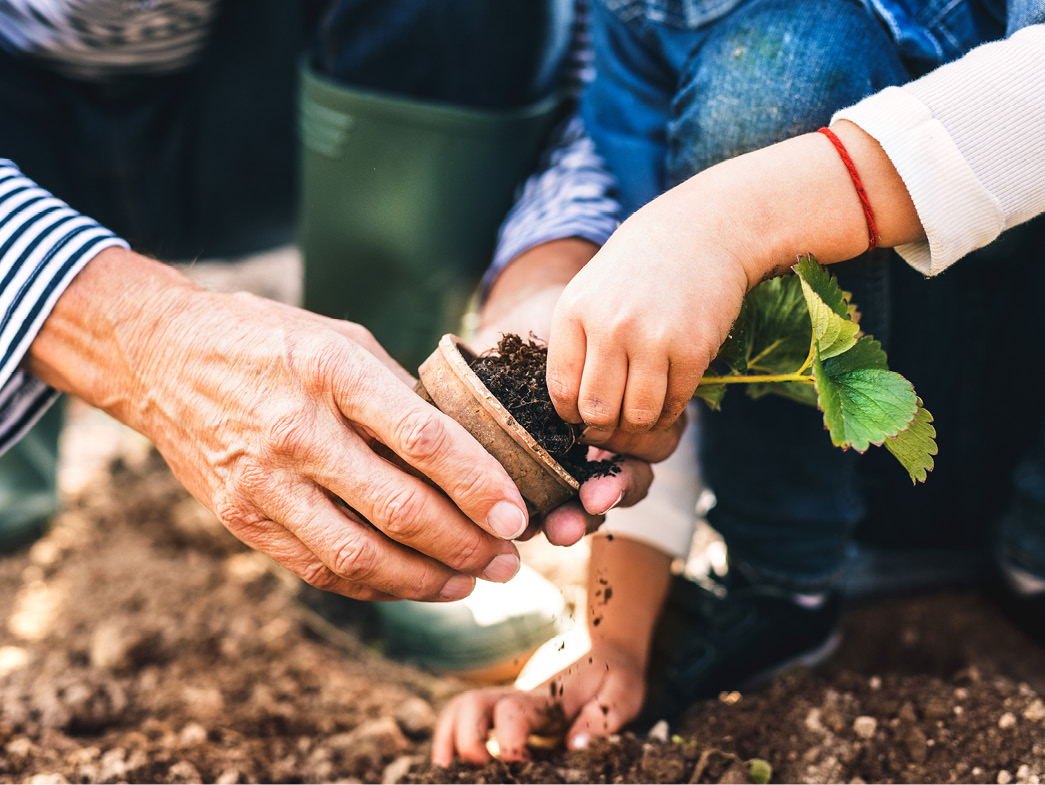Natural Options for a Chemical-Free Garden

When you make the decision that you would like to use more organic products for your garden and landscaping, it can be difficult to know where to begin. There are so many mass-manufactured chemical products that are inexpensive and easy to help keep weeds and insects at bay! The fewer chemicals we use in our lawns and gardens, the better it is for everyone, and these tips will help you get started on a more natural approach to a healthy garden, even halfway through the growing season!
-
Grass clippings from your lawn can be used to mulch and enrich the soil. According to Mother Earth News, a mulch of 1”-2” of cut grass can feed your garden for the season.
-
Natural fertilizer can be found in worm castings, and vermicomposting is one project the whole family can get involved in! Learn how to create worm beds from gardeningknowhow.com.
-
Proper mulching is the best natural defense against weeds. Some plants are persistent, so the gardener needs to be persistent about keeping them in check! Pull the plant by hand, (complete with roots), or use a hoe to get them out of the ground.
-
While water is probably the most important ingredient for a productive garden, timing is important for keeping diseases and pests at bay. Watering your plants in the evenings can cause fungi and mildew to grow, and neither is easy to get rid of once they set in.
-
Learn how to identify beneficial and detrimental insects. While they may strike fear when we see them, many stinging insects are taking care of the bad ones that are eating up our vegetables. The Sod God offers some excellent information as well as infographics to help you distinguish between the good and the bad.
-
Fragrant plants attract beneficial insects; plants like marigold, sweet alyssum, cilantro, yarrow, and fennel are just a few you can companion grow near your veggies to bring the good bugs to your garden.
-
Row covers are a great and chemical-free way to keep not only insects away, but veggie-loving birds as well. If they cover your plants completely as they grow, they will provide a barrier between your plants and the bad guys.
-
If your plants are being taken over by soft-bodied insects like aphids and whiteflies, make your own insecticidal soap--just follow these easy instructions from Horticulture magazine.
Using fewer chemicals in your landscape and garden takes knowledge and a little extra work. Contact your local extension agent for help and look for sources that have been certified as an organic entity or are written or produced by someone who has been gardening the natural way and has lots of experience. Reap the rewards of not only a great vegetable harvest, but the rewards of keeping chemicals out of the ground and water sources.
Courtesy of New Castle County DE Realtors Tucker Robbins and Carol Arnott Robbins.
Photo credit: American Lifestyle Magazine





